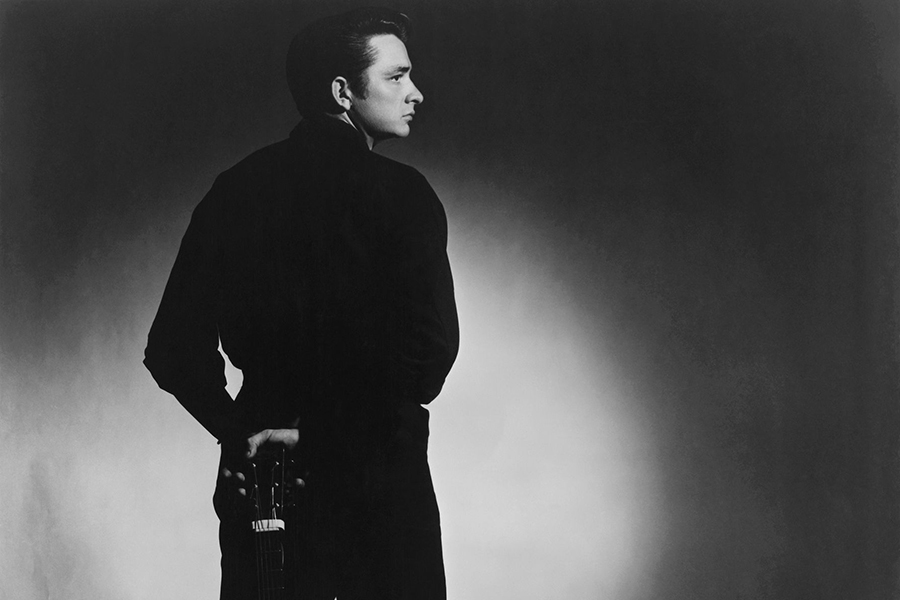REWIND: Martin Luther King’s life and legacy in music

Johnny Cash poses for a portrait in Memphis in 1957. Photo by Michael Ochs Archives/Getty Images.
This Monday is Martin Luther King, Jr. Day, so it’s worth taking some time to remember the man and his legacy rather than just treating it like whatever President’s Day is supposed to be and enjoying the day off.
These days, King is best known as supporting whatever policy the speaker supports. Now that he can’t speak for himself, people love to insist he would be on their side. But in his day—and I’m sure you’ve seen plenty of articles pointing this out—he was very economically socialist. He wasn’t violent, but that doesn’t mean he didn’t encourage people to behave or to obey the government. He was wildly unpopular in his time among white people for a reason, even if they all decided he’s great once he was dead.
His death and his legacy also inspired many songs touching on different aspects of his life and death. So, rather than just give you another thinkpiece on his politics, let’s listen to what some others thought of him.
Public Enemy — “By the Time I Get to Arizona”
Fun fact: John McCain, praised after his death as a beacon of rationality and bipartisanship, voted against making Martin Luther King, Jr. Day a national holiday.
But it wasn’t just McCain; the entire state of Arizona absolutely hated the idea of honoring a Black man. It passed despite McCain’s objections, so then-Governor Evan Mecham canceled the holiday for state employees. Because he was a racist and a jerk. And how did he justify this? Well, he told a group of Black community leaders, “You folks don’t need another holiday. What you folks need are jobs.”
Chuck D and Public Enemy had something to say about that. Coretta Scott King was not thrilled about the violent imagery in honor of her late husband, but it’s Public Enemy and that’s what they do.
Anyway, this story has a happy ending. Mecham broke campaign finance law in a variety of ways, including giving his car dealership money from his campaign fund, and was removed from office after a year and three months. Couldn’t have happened to a nicer guy.
James Taylor — “Shed a Little Light”
Despite King’s assassination happening during the golden era of American music, Taylor’s ode wasn’t released until 1991. But, unlike most of the other songs on this list, this isn’t specifically about his assassination. This one is about King’s message, his life and work.
The biggest problem with martyrs is that we only tend to remember them for their martyrdom. We remember King’s “I Have A Dream” speech and the big-picture stuff, but most of what we hear about him is people who never met the man insisting that he would support whatever their position is, often without evidence. So credit to James Taylor for remembering the good along with the bad and spreading that good work.
Elvis Presley — “If I Can Dream”
I love Elvis’ music, but I recognize that Elvis was not exactly enlightened about race. I mean, he pretty much got famous being a white guy singing Black music. That said, I’ve gotta give him credit on this one.
Presley idolized Martin Luther King, Jr. and was absolutely devastated when he was assassinated. His manager Colonel Tom Parker wanted him to sing “I’ll Be Home For Christmas” to close out his 1968 comeback special—which aired in June—but he insisted on “If I Can Dream” in honor of the then-recent assassination. And he did. And it became a hit.
In fact, when Presley first heard the song, he declared that he’d never again sing another song or be in another movie he didn’t believe in. And he kept that promise, which is doubly impressive considering the fact he sang and acted in anything for his entire early career.
Remember, anyone can change.
Dion — “Abraham, Martin and John”
Written by Dick Holler in response to the assassination of MLK, this song immediately had a couple covers. Dion came first in August 1968, followed shortly thereafter by Smokey Robinson, then Marvin Gaye. After that, Ray Charles covered it, then Leonard Nimoy (seriously). I’m pretty sure everyone has heard this song, but it also seems that everyone has heard a different version.
One thing this song drives home for me is how shockingly common assassinations were in that era. John F. Kennedy was assassinated in late 1963 and King in spring of 1968, and each of them, plus Abraham Lincoln, gets a verse in the song. But then, in addition to those three men, there’s a fourth verse for Robert Kennedy, killed two months after King.
In addition to those, Malcolm X was assassinated in 1965. Far less tragically, a man named George Rockwell, head of the American Nazi Party, was assassinated during his campaign for Governor of Virginia, hilariously by another Nazi. (Don’t be, or associate, with Nazis is the lesson here.) It kept going through the ’70s, most notably Harvey Milk in 1978 and John Lennon in 1980.
These days? The only one that comes to mind is Judge John Roll, killed in the attempted assassination of Rep. Gabby Giffords. This is one trend we should absolutely not bring back.
Johnny Cash — “They Killed Him”
Being a country singer, and being arguably best-known for “Folsom Prison Blues,” Johnny Cash’s legacy has been co-opted by white supremacists more than he would be comfortable with. Because it’s obvious from his music that the man was clearly very liberal.
Take Blood, Sweat and Tears, which, as this Slate article points out, is very clearly a civil rights protest album. It’s not as overt as many others, but in its subtlety and its storytelling, it’s arguably more impactful and emotionally resonant.
Then, of course, is his recording of Kris Kristofferson’s “They Killed Him.” Kristofferson wrote it in the early ’80s and Cash was first to actually record it in 1984. It’s a tribute to Gandhi, JFK and Robert Kennedy, Jesus, and of course, Martin Luther King, Jr., none of whom espoused views in line with modern conservatism. Yes, I know what I said, and I stand by it.
My point is, don’t judge a man by the style in which he sings music.
Follow editor Daniel J. Willis and tweet column ideas to him at Twitter.com/BayAreaData.
